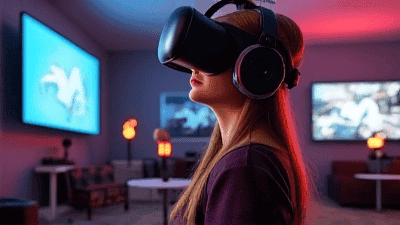
In the digital age, social media platforms have become an integral part of everyday life for millions of people around the globe. From connecting with friends and family to sharing thoughts, experiences, and creative content, social media has revolutionized how we communicate and interact. However, as these platforms have grown in popularity and influence, a growing body of research has begun to uncover the complexities of their impact on mental health.
The Dual Nature of Social Media
Social media can be understood as a double-edged sword. On one side, it offers essential benefits and opportunities for connection, community, and expression. On the other side, it can contribute to negative mental health outcomes such as anxiety, depression, and low self-esteem.
Positive Impacts of Social Media on Mental Health
1. Connection and Community
One of the most significant advantages of social media is its ability to connect individuals from diverse backgrounds. Whether it's reuniting with old friends, engaging in supportive groups, or meeting like-minded individuals, social media fosters connections that can combat feelings of loneliness and isolation.
For example, individuals with chronic illnesses or specific interests may struggle to find people in their immediate surroundings who understand their experiences. Online platforms provide a space for these individuals to find community and support, fostering a sense of belonging.
2. Support Networks
Online support groups have proliferated on social media, providing validation and encouragement to individuals facing mental health challenges. These communities allow members to share experiences, coping strategies, and resources, helping individuals navigate their struggles more effectively.
Research indicates that participating in online support communities can lead to improved mental health outcomes. For instance, individuals who engage in moderated support groups tend to report lower levels of anxiety and depression and increased feelings of empowerment.
3. Awareness and Education
Social media serves as a powerful tool for raising awareness about mental health issues and reducing stigma. Campaigns and hashtags focused on mental health topics encourage open discussions, helping individuals recognize that they are not alone and that seeking help is vital.
This newfound awareness has prompted many to seek therapy or support services they might not have considered otherwise. Sharing valuable resources, personal stories, and informative content creates a culture of understanding and acceptance surrounding mental health.
4. Creative Expression
For many individuals, social media provides an outlet for creative expression. Whether through art, writing, photography, or other forms of creativity, sharing one’s work online can lead to a sense of accomplishment and validation.
Creative expression has proven mental health benefits, including reducing stress and enhancing overall well-being. Platforms like Instagram, Pinterest, and TikTok have become hubs for creative talent, giving users the opportunity to explore their passions and connect with an appreciative audience.
The Negative Impacts of Social Media on Mental Health
Despite the benefits, social media can also have detrimental effects on mental well-being. These negative impacts often stem from how individuals engage with these platforms and the nature of online interactions.
1. Comparison and Self-Esteem Issues
Social media often presents an idealized version of life, leading individuals to compare themselves to carefully curated posts from others. This comparison can result in feelings of inadequacy, jealousy, and low self-esteem.
For example, a user might scroll through their feed and see friends and influencers showcasing vacations, achievements, or physical appearances that seem unattainable. This phenomenon, referred to as "social comparison," can contribute to anxiety and depression as individuals feel they are falling short of societal standards.
2. Cyberbullying
Cyberbullying is a significant concern in the realm of social media. The anonymity of the internet can embolden individuals to engage in harmful behaviors, targeting victims with insults, harassment, or threats.
Research has demonstrated a correlation between cyberbullying and increased rates of anxiety, depression, and suicidal thoughts among affected individuals. The emotional toll of being targeted online can result in long-lasting psychological trauma, further complicating a victim's mental health.
3. Fear of Missing Out (FOMO)
The constant stream of updates and activities shared on social media can lead to feelings of FOMO—fear of missing out. Individuals may feel pressured to keep up with events, trends, or social gatherings, leading to anxiety and a sense of exclusion.
FOMO can create a cycle of hyper-vigilance regarding social media activities, resulting in excessive scrolling, checking, or posting in an attempt to stay connected. This behavior can exacerbate feelings of inadequacy and stress, detracting from overall mental well-being.
4. Addiction and Distraction
Social media can lead to addictive behaviors, with individuals spending excessive amounts of time online. This addiction can manifest in various ways, including compulsive scrolling and an inability to disconnect from digital devices.
Such overuse can result in impaired focus, disrupted sleep patterns, and diminished productivity. Moreover, excessive time spent on social media can interfere with real-life relationships and self-care activities, further impacting mental health.
Research Findings: Social Media and Mental Health

Numerous studies have examined the relationship between social media use and mental health outcomes. While findings vary, certain trends have emerged in the research.
Positive Correlations
Some studies indicate that individuals who engage meaningfully with social media—by sharing experiences, providing support to others, and participating in positive communities—report better mental health outcomes. The quality of online interactions appears to be a significant factor in determining overall well-being.
Negative Correlations
Conversely, research highlights that excessive social media use, particularly passive consumption (scrolling without engaging), is linked to negative mental health outcomes. Passive users often experience increased feelings of loneliness and depression compared to those who actively participate.
In a study conducted by the University of Pennsylvania, researchers found that limiting social media use to 30 minutes a day resulted in significant reductions in anxiety, depression, and feelings of loneliness among participants.
Navigating Social Media Mindfully
To harness the positive aspects of social media while mitigating its negative effects, consider implementing the following strategies for mindful engagement:
1. Set Boundaries
Establishing clear boundaries for social media use can help prevent excessive engagement. Consider setting time limits for daily use, scheduling digital detox periods, or defining specific timeframes for checking and posting on social media.
2. Curate Your Feed
Take control of your social media experience by curating the content you consume. Unfollow accounts that evoke negative emotions, and instead surround yourself with uplifting, informative, and supportive content.
3. Engage Authentically
Instead of merely scrolling, engage with content that resonates with you. Comment, share, and participate in discussions that promote positive interactions and connections.
4. Recognize Triggers
Be aware of what specific content or interactions negatively impact your mental health. Understanding your triggers can help you take proactive steps to manage your social media experience more effectively.
5. Prioritize Real-Life Connections
While social media can facilitate connections, prioritize in-person interactions. Nurturing real-life relationships can provide a more profound sense of belonging and support, ultimately enhancing mental well-being.
6. Seek Help if Needed
If you notice that social media is significantly affecting your mental health, consider seeking support. Speaking with a therapist or counselor can provide you with tools and strategies to navigate your online experience more effectively.
The Role of Platforms in Mental Health

Social media platforms also have a responsibility to promote mental well-being among their users. As public awareness of mental health issues grows, many platforms are taking steps to address the potential negative impacts of their services.
1. Implementing Mental Health Resources
Several social media platforms have begun to introduce mental health resources, offering support and information directly through their interfaces. These resources may include links to hotlines, articles on mental health, and ways to connect with support networks.
2. Promoting Positive Content
Indices of positive engagement and well-being can be integrated into platform algorithms to promote uplifting and constructive content. Prioritizing wellness-themed content can help users feel encouraged and empowered.
3. Combatting Cyberbullying
Addressing cyberbullying remains a crucial area of focus. Social media platforms must continue to evolve their reporting mechanisms and moderation policies to create safer online spaces for users.
4. Raising Awareness
Platforms can play an active role in raising awareness about mental health issues through campaigns, collaborations, and partnerships with mental health organizations. By leveraging their reach, these platforms can contribute to reducing stigma and promoting open discussions.
Conclusion
The impact of social media on mental health is a complex and evolving issue. While social media offers unparalleled opportunities for connection, community, and creative expression, it can also contribute to anxiety, depression, and feelings of inadequacy.
As users navigate the digital landscape, it is essential to engage mindfully, recognizing the dual nature of social media and its potential influence on well-being. By fostering positive interactions, setting boundaries, and seeking support when needed, individuals can create a more enriching social media experience that enhances their mental health.
Moving forward, both individuals and social media platforms have a role to play in shaping the online environment. By prioritizing mental well-being and promoting healthy engagement, we can harness the benefits of social media while minimizing its potential harms. Ultimately, the goal is to create a digital world where connection, support, and understanding flourish.








